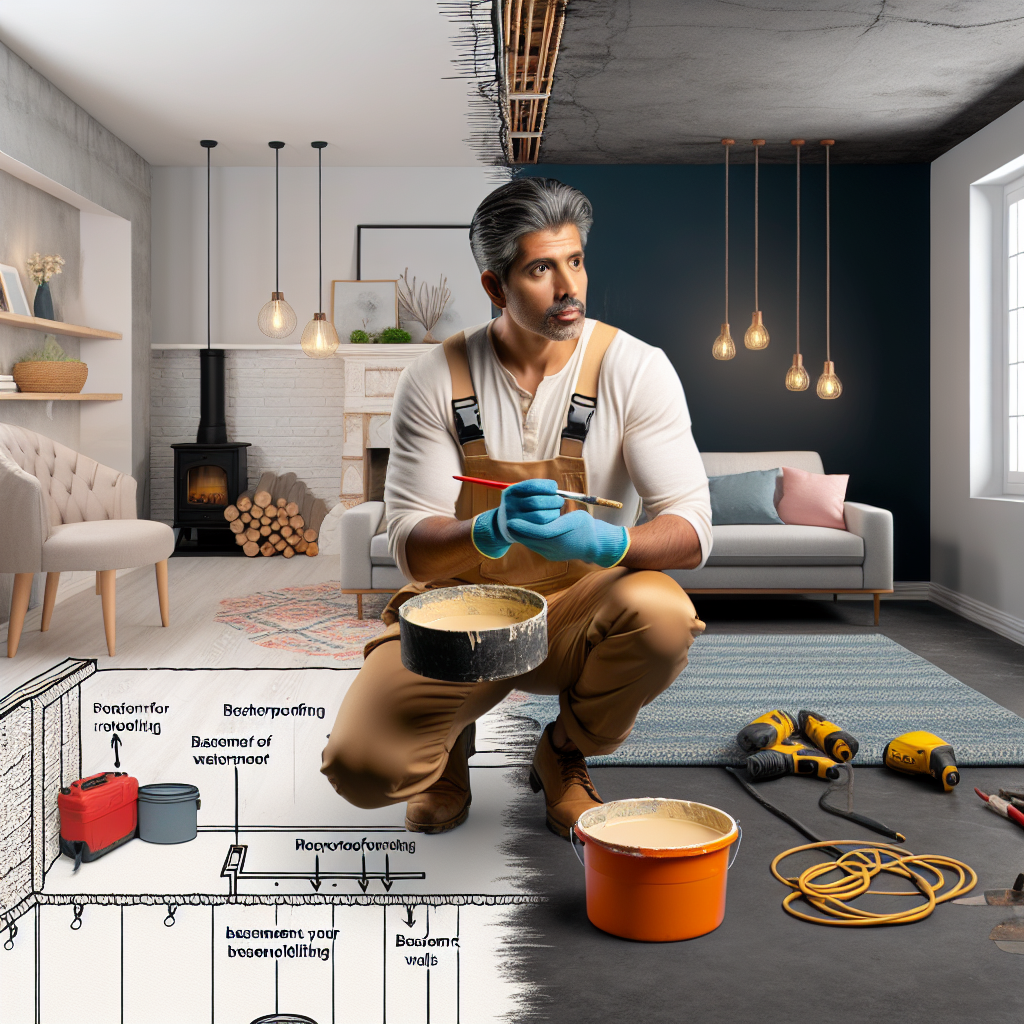When it comes to home remodeling projects, the basement often emerges as a blank canvas filled with potential. Whether you’re dreaming of a cozy media room, a functional home office, or even an expansive guest suite, the basement can dramatically enhance your living space. However, before you dive into the exciting aspects of remodeling, there’s an essential step that often gets overlooked: waterproofing your basement.
In this article, we’ll explore the critical reasons why waterproofing is crucial before embarking on any remodeling project, as well as tips and tricks to help you ensure your basement remains a dry, vibrant part of your home.
1. Protect Your Investment
One of the primary reasons to waterproof your basement before remodeling is to protect your investment. Remodeling can be a significant financial commitment, and you want to ensure that your money goes toward a project that will last. Water damage can undermine the entire structure of your home, leading to costly repairs, mold growth, and even pest infestations. By waterproofing your basement first, you’re safeguarding not only the remodel but also the foundational integrity of your home.
2. Prevent Structural Damage
Basements are naturally prone to moisture, especially in regions with heavy rainfall or high groundwater levels. Without proper waterproofing, your basement can become a breeding ground for water-related issues that could compromise the structural integrity of your home. From foundational cracks to rotting wood beams, moisture can wreak havoc on your home’s foundation, leading to severe structural damage over time. Waterproofing creates a barrier against moisture, helping you avoid deterioration and costly repairs.
3. Mold and Mildew Prevention
One of the most alarming outcomes of basement water intrusion is mold development. Mold not only produces foul odors but can also pose serious health risks, especially for those with allergies or respiratory issues. Moisture-rich environments create an ideal setting for mold and mildew to thrive. By waterproofing your basement, you effectively reduce the risk of mold growth, ensuring a healthier atmosphere for you and your family.
4. Enhance Air Quality
A dry basement contributes to better indoor air quality throughout your home. When your basement is damp, that moisture can travel upwards, affecting the air quality in the upper levels of your home. Poor air quality can lead to various health issues, including allergies and asthma. Waterproofing not only keeps your basement dry but also improves the overall air quality in your living space, promoting a healthier environment for you and your loved ones.
5. Increase Property Value
Homebuyers are increasingly savvy, and a finished, waterproofed basement can give your property significant appeal. If you decide to sell your home in the future, a well-remodeled and dry basement can make your home much more attractive to potential buyers. In contrast, a basement with water damage or mold issues can scare off buyers and reduce your home’s market value. Proper waterproofing before remodeling can serve as a strong selling point.
6. What Waterproofing Options Are Available?
Now that you understand the importance of waterproofing, let’s delve into some common waterproofing methods:
-
Interior Sealants: These are applied to the walls and floors of the basement to create a barrier that prevents moisture from seeping in. This option can be cost-effective for minor moisture issues.
-
Exterior Waterproofing: This involves excavating the soil around your home’s foundation and applying a waterproof membrane. While it’s a more labor-intensive option, it can provide a long-term solution to significant water intrusion problems.
-
Sump Pump Installation: A sump pump is an excellent addition to your waterproofing strategy. It collects excess water and pumps it away from your foundation, effectively reducing moisture levels in your basement.
- French Drains: These are installed around the basement’s perimeter to direct water away from the foundation. They are often used in conjunction with other waterproofing methods for maximum effectiveness.
7. Conclusion
Remodeling your basement is an exciting venture filled with possibilities. However, before you begin this transformative journey, it’s essential to prioritize waterproofing your basement. Not only will it protect your investment and prevent structural damage, but it will also ensure a healthy living space and even enhance your property’s value. Taking proactive steps now can save you from headaches and expenses down the road, allowing you to enjoy your newly remodeled basement for years to come.
By investing the time and resources into proper waterproofing, you’re not just preparing a space for remodeling; you’re creating a safe, welcoming environment for your family and future guests. So, before you grab that paintbrush or call up the contractors, remember: a dry basement is a happy basement!


